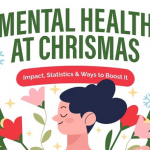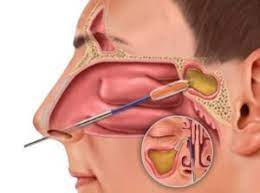By Scarlett Jones, a guest post originally published here.
People ask is coffee good for you? Well, did you know that Americans would have consumed 624 million cups of coffee by the end of today? This is, however, not surprising if you consider that 70% of Americans say they consume coffee at least once every week, while 62% drink the beverage daily.
Why is a steaming cup of coffee the first thing many people think about when they wake up? Many coffee drinkers will say that they love coffee because it immediately makes them feel energized and alert.
But is it good for you? If you are a coffee lover looking for an answer to this question, we have good news. Yes, coffee is indeed good for you and your health. You don’t have to take our word for it because several scientific studies have proved this to be true.
This article presents 12 proven health benefits of coffee.
How do you make good coffee?

When it comes to getting the full benefits of coffee, the way you prepare the beverage matters.
A news article published by Harvard Health Publishing cites, “A study published … by the European Journal of Preventive Cardiology [which] found that filtering coffee … — not just boiling ground coffee beans and drinking the water — was better for health, particularly for older people.”
The idea that the way you make your coffee matters is supported by Brian Bennett, a restaurateur who says he “believes in serving all-natural, local, organic and, most importantly, delicious food!”
Writing for the American website that focuses on technology and consumer electronics, Cnet.com, Bennett says, “Depending on if you dig drip, French press, cold brew, or prefer to single-pod it up, your method of coffee making has a measurable impact on flavor and quality.”
Bennett also suggests different ways of brewing various types of coffee. However, his final advice is, “Like any personal pursuit or pleasurable endeavor, brewing and enjoying coffee is highly subjective.” So he suggests, “Just brew it your way.”
Is coffee good for you then? 12 key facts
Now that you know how to make your coffee, let’s look at the health-related reasons you should make more of the beverage.
1. Coffee Boosts Metabolism and Facilitates Burning of Fat
It is estimated that 69% of Americans are either overweight or obese. Many of these people are involved in efforts to get rid of the extra fat. While we cannot say that drinking coffee alone would help them shed the unwanted pounds, studies have shown that it can play a substantial role.
This conclusion is acknowledged by researchers from the Harvard T.H. Chan School of Public Health, who concluded that “Drinking four cups of coffee daily could reduce body fat by up to 4%.”
Healthline.com cites several studies showing that coffee consumption could be associated with better gut health, decreased body fat, and an increased likelihood of physical activity. All these could assist in promoting weight management.
2. Contains Essential Nutrients
Of course, the one element most associated with coffee is caffeine, but did you know that the beverage also has several other healthy nutrients?
MedicalNewsToday.com, the online outlet for medical news and information, lists some valuable nutrients in coffee:
- Riboflavin (vitamin B2): Helps the body turn food into fuel.
- Niacin (vitamin B3): Plays a role in the digestive system, nervous system, and skin health.
- Magnesium: Supports nerve and muscle function.
- Potassium: Assist in regulating nerve signals, muscle contractions, and fluid balance.
3. May Reduce Diabetes Risk
A study published by the European Endocrinology journal reports, “Coffee consumption has been associated with a decrease in risk of developing Type 2 diabetes.” The same study found that “numerous epidemiological studies have demonstrated that healthy, habitual coffee drinkers are more protected from the risk of contracting diabetes than individuals who do not drink coffee.”
The American publisher of human health and wellbeing information and news, WebMD.com, cited 15 published studies when it concluded that the data linking coffee to reducing the risk of diabetes is “pretty solid.”
4. Lowers Parkinson’s Risk
The journal of the American Neurological Association and the Child Neurology Association published a meta-analysis (a study combining the results of several studies) with somewhat surprising results regarding the relationship between coffee, smoking, and Parkinson’s disease.
This study, conducted by a group of academics, concluded that “there is strong epidemiological evidence that smokers and coffee drinkers have a lower risk of Parkinson’s disease.”
The idea that drinking coffee may benefit those with Parkinson’s is also supported by Johns Hopkins Medicine. The institution reports, “Caffeine is linked to a lower chance of developing Parkinson’s disease, but it may also help those with the condition better control their movements.”
5. Decreases the Risk of Alzheimer’s Disease
Johns Hopkins Medicine also reports that around two-thirds of Americans living with Alzheimer’s disease are female. The organization suggests that drinking at least two cups of coffee daily could keep the condition at bay.
According to Johns Hopkins Medicine, studies have concluded that women aged 65 and older could reduce their chance of developing dementia by drinking two to three cups of coffee per day.
6. Could Lower the Risk of Stroke
In the US, the prevalence of stroke is around 3%, which translates to around 10 million people. The National Coffee Association (NCA) USA presents some studies showing that drinking coffee could modestly reduce these numbers by lowering the risk of stroke.
MedicalNewsToday.com reports on several studies, including a 2017 meta-analysis whose findings indicate that caffeine consumption could improve cardiovascular health, including lowering blood pressure.

7. Coffee Could Save Your Kidney
Numerous studies support the assumption that drinking coffee could save your kidneys.
For instance, a study cited by the NCA and published by the Journal of Renal Nutrition concludes that the consumption of coffee was dose-dependently linked with lower incident chronic kidney disease (CKD), end-stage kidney disease (ESKD), and albuminuria (a disease of the kidney that results in renal failure).
8. May Reduce Risk of Certain Cancer Types
While it is impossible to conclusively say why one individual gets cancer, and another not, scientists have noted certain risk factors linked to behavior and exposure to chemicals or other substances. Other factors like age and family history cannot be controlled.
Drinking coffee is one behavior that can be controlled and could reduce your risk of getting cancer, and the scientists agree. For example, scientists at the Harvard T.H. Chan School of Public Health report that “coffee may affect how cancer develops, ranging from the initiation of a cancer cell to its death.”
The same source adds that “coffee may stimulate the production of bile acids and speed digestion through the colon, which can lower the amount of carcinogens [something that causes cancer] to which colon tissue is exposed.”
9. Huge Source of Antioxidants
The human body naturally goes through a process known as oxidation, facilitated by unstable chemicals called free radicals. These free radicals can cause damage to certain parts of the body, leading to conditions like cancer and heart disease.
To reduce the effects of oxidants on the body, it’s vital to consume antioxidants through what we eat and drink. A study published by the National Library of Sciences concludes that “the single greatest contributor to the total antioxidant intake was coffee.”
10. Acts As an Antidepressant
The American Psychiatric Association defines depression as “a common and serious medical illness that negatively affects how you feel, the way you think and how you act.” The same source adds that depression could make an individual feel sad and uninterested in things they once enjoyed.
It’s good to know that depression can be treated. Healthline.com reports on several studies that link coffee to a reduced risk of depression. For instance, one study indicated that each cup of coffee you drink per day could lower your risk of depression by 8%.
11. Increases Energy and Alertness
Most of us wake up every morning to a cup of coffee for a reason – it makes us feel more energetic and alert. But is this feeling supported by scientific evidence?
Evidence has indeed shown that the assumption that coffee makes people more energetic and alert is credible.
OneMedical.com reports about an Austrian study, which concluded that “the memory skills and reaction times of … caffeinated volunteers were … improved when compared to the control group who received a placebo and showed no increase in brain activity”.
12. Coffee Could Make You Live Longer
Suppose coffee really does present the benefits above. In that case, it’s not difficult to see how the beverage can make you live longer.
The conclusion that coffee could add years to your life is supported by Johns Hopkins Medicine, which reports on recent studies that have found that coffee drinkers have a lower likelihood of dying from common diseases that affect women, such as diabetes, kidney disease, stroke, and coronary heart disease.

Grab that Cup of Coffee
I believe that by now, you know that your coffee drinking habit is not only safe, but it also presents benefits for your health and wellbeing. So coffee is good for you after all.
However, as you grab that cup of coffee, remember that everything should be done in moderation. Also, you will notice that many of the studies use the word “may.” This indicates that the conclusions are not absolute.
Many factors need to be considered in relation to each individual. Therefore, it’s vital to use your common sense and keep abreast with ongoing developments in research about the health benefits of coffee.







